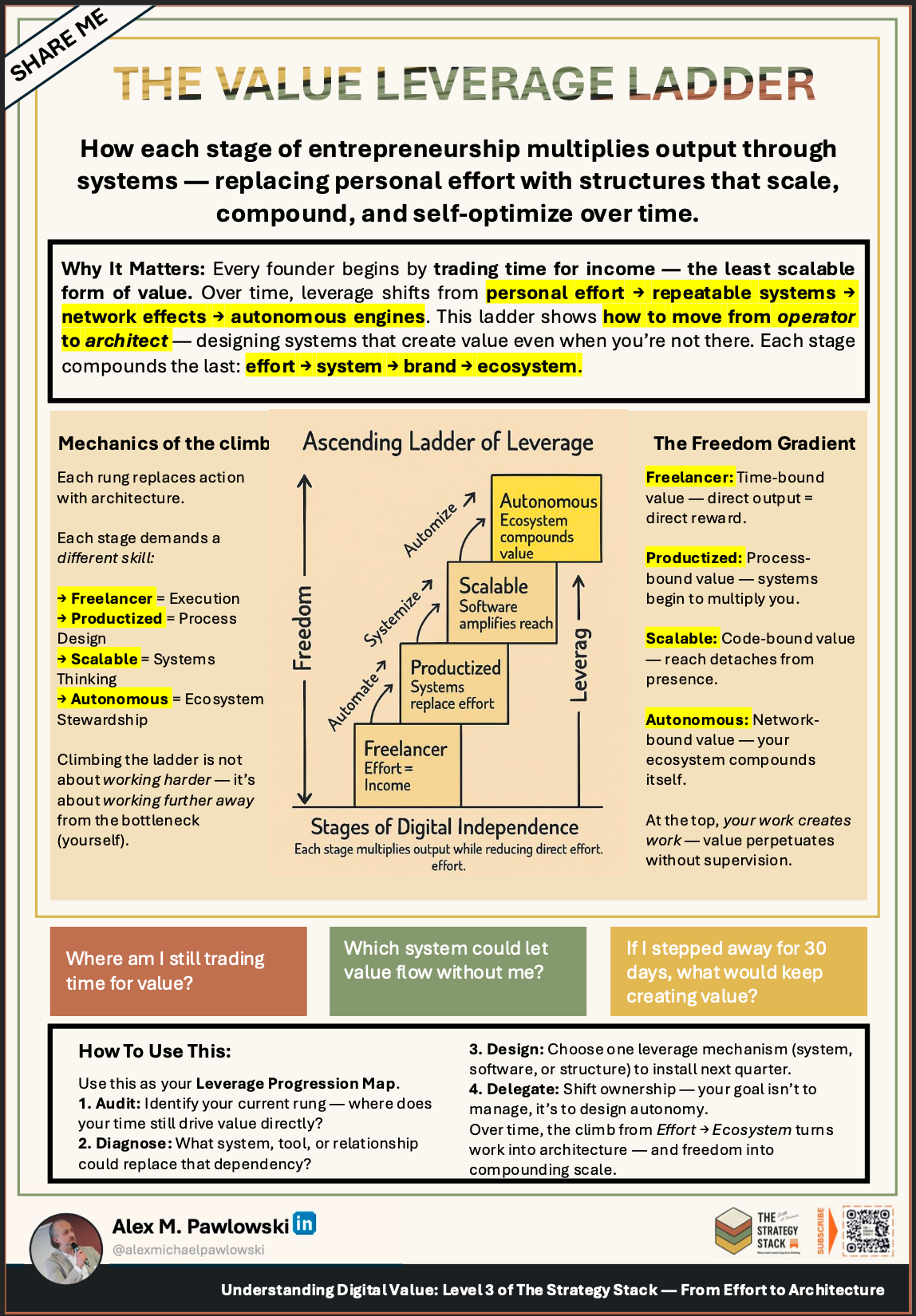The Value Leverage Ladder: How Founders Escape the Effort Trap and Build Self-Scaling Systems
#126: From effort to architecture — the hidden gradient of freedom every founder climbs
Get the slide-ready PDF + editable Leverage Progression Map (and 100+ tools in the S-Vault).
In every founder’s journey, there comes a moment when more effort stops working.
You can’t simply grind harder, hire faster, or multitask better — the system itself becomes the bottleneck.
Those who break through this ceiling don’t just work more efficiently — they architect leverage.
They design structures that create value even when they’re not there.
This invisible transition — from effort to architecture — is the core of what I call The Value Leverage Ladder:
a map showing how entrepreneurs evolve from operators to architects by replacing personal effort with systems that scale, compound, and self-optimize over time.
TL;DR — The Value Leverage Ladder
Every founder starts by trading time for income — the least scalable form of value.
The goal is to shift from personal effort → repeatable systems → network effects → autonomous ecosystems.
Each stage multiplies output while reducing direct involvement:
Effort → System → Brand → Ecosystem.
You don’t scale by working harder.
You scale by designing structures that work harder than you do.
Keep reading with a 7-day free trial
Subscribe to The Strategy Stack to keep reading this post and get 7 days of free access to the full post archives.



